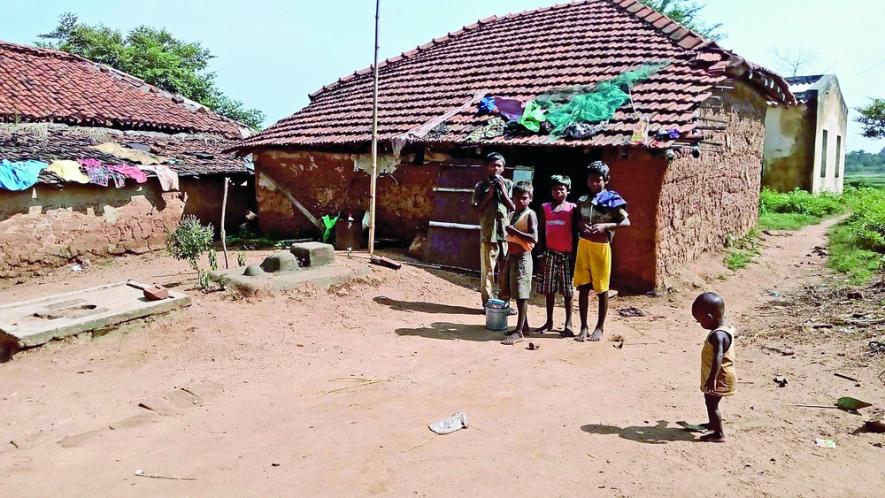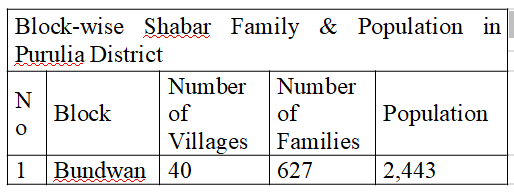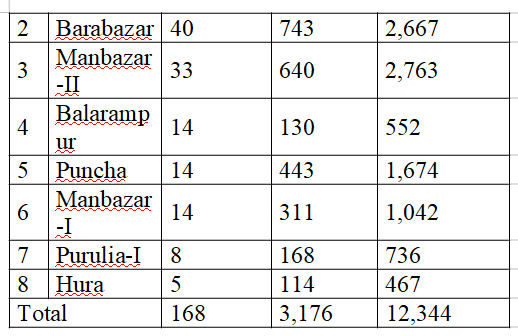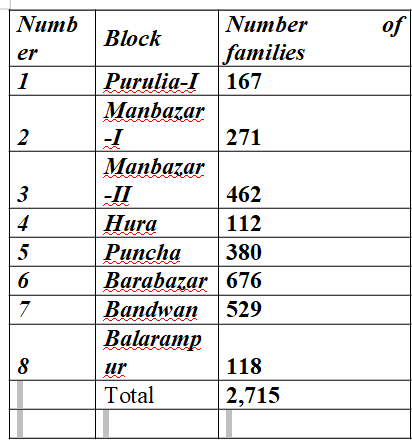West Bengal’s Shabar Tribe Bears Criminal Stigma of British Rule

Image Courtesy: Telegraph India
Rajnowagarh (Purulia): Stigmatised, ostracised and treated as a habitual offender, 27-year-old Bishnu Shabar represents the plight of the Shabars, a scheduled tribe that continues to bear the burden of the criminal tag of colonial times in West Bengal.
A native of Raghunathpur village, in Manbazar-II Block, Shabar has witnessed his cousins thrashed by mobs and the police on charges as frivolous as stealing a bicycle. Classified as criminals under the scrapped Criminal Tribes Act, 1871, the Shabars bear the stigma in West Bengal, where they have still not been identified under Particularly Vulnerable Tribal Groups, unlike neighbouring Orissa and Bihar. In fact, the case of Budhan Shabar’s custodial death in February 1998, which had triggered a flood of emotions in the state, is pending in the Calcutta High Court.
Villages after villages Newsclick visited had half-hungry natives managing to survive on a staple diet of plain rice and water. “They can afford to eat only once a day,” said Prasanta Rakshit, director, Paschim Banga Kheria Shabar Kalyan Samity (PBKSKS), who accompanied us to the villages of Aokorbandh (Purulia I Block) and Bangthupi (Puncha Block) of the Purulia district.
The Shabartollahs, or the small hamlets where the Shabars stay, are outside the villages as they were considered pariahs. Years of Left rule changed their pathetic condition to an extent but not the mindset of society—the tribe’s burial spot at Shonadungri village was occupied by the Mahato community recently.
PBKSKS secretary Jaladhar Shabar, of Kuda village, in Manbazar-I Block, has seen his father and uncle being beaten up on frivolous charges. “We came here from the nearby forests of Jharkhand three generations earlier after the British took our forestland. We continued to be harassed in Bengal as well until the Shabars under Gopiballav Singha Deo formed the Paschim Banga Kheria Shabar Kalyan Samity in 1968. Now, the incidences of police torture have reduced to an extent,” he told Newsclick.
Ramon Magsaysay Award-winning writer and activist Mahasweta Devi was a staunch supporter of the Shabars. The literary giant, whose mortal remains were buried in Rajnowagarh, was also a mother to the tribe, Prasanta Rakshit, her close confidant, recollected.
Abject poverty is the main reason for malnutrition in Shabar women. The children stare at a dark future. The PBKSKS classrooms in 15 Shabartollahs where 432 students are taught free of cost are not enough.


Every village has a sad story. Anil Shabar of Kuda had committed suicide six months earlier. At Bangthupi, the sight of children eating rice with plain water was sad beyond words. The abysmal treatment by society is reflected in songs like Aola Baola. Unsurprisingly, death is an inseparable part of their song tradition as well with the average life expectancy below 60 years—field workers active in the area said it is 50.
The lack of Aadhaar cards has only added to their problems with the state government showing no interest. Out of 3,166 families, 2,715 families do not have Aadhaar Cards. PBKSKS recently wrote to the chief minister and the district magistrate requesting their intervention.
List of Shabars who have Aadhaar Cards but with their family members lacking an UID number.

Without Aadhaar cards, the Shabars are not entitled to the state and Central government schemes—Swasthya Sathi government health cards or unemployment allowances. They don’t even get 100 days of work and they remain outside the banking system. PBKSKS had requested the Centre to assign it the responsibility of making Aadhaar Cards for the remaining families. However, PBKSKS dropped the idea after knowing that it needed to pay “Rs 2.5 lakh cut money” to government agencies, the Samity alleged.
Treated as pariahs, they stay in the forestlands and on the outskirts of the villages. So far, only 11 Shabars have got Pattas under the Forest Rights Act, 2006. The Shabars neither have cultivable land nor land to stay.
Get the latest reports & analysis with people's perspective on Protests, movements & deep analytical videos, discussions of the current affairs in your Telegram app. Subscribe to NewsClick's Telegram channel & get Real-Time updates on stories, as they get published on our website.
























